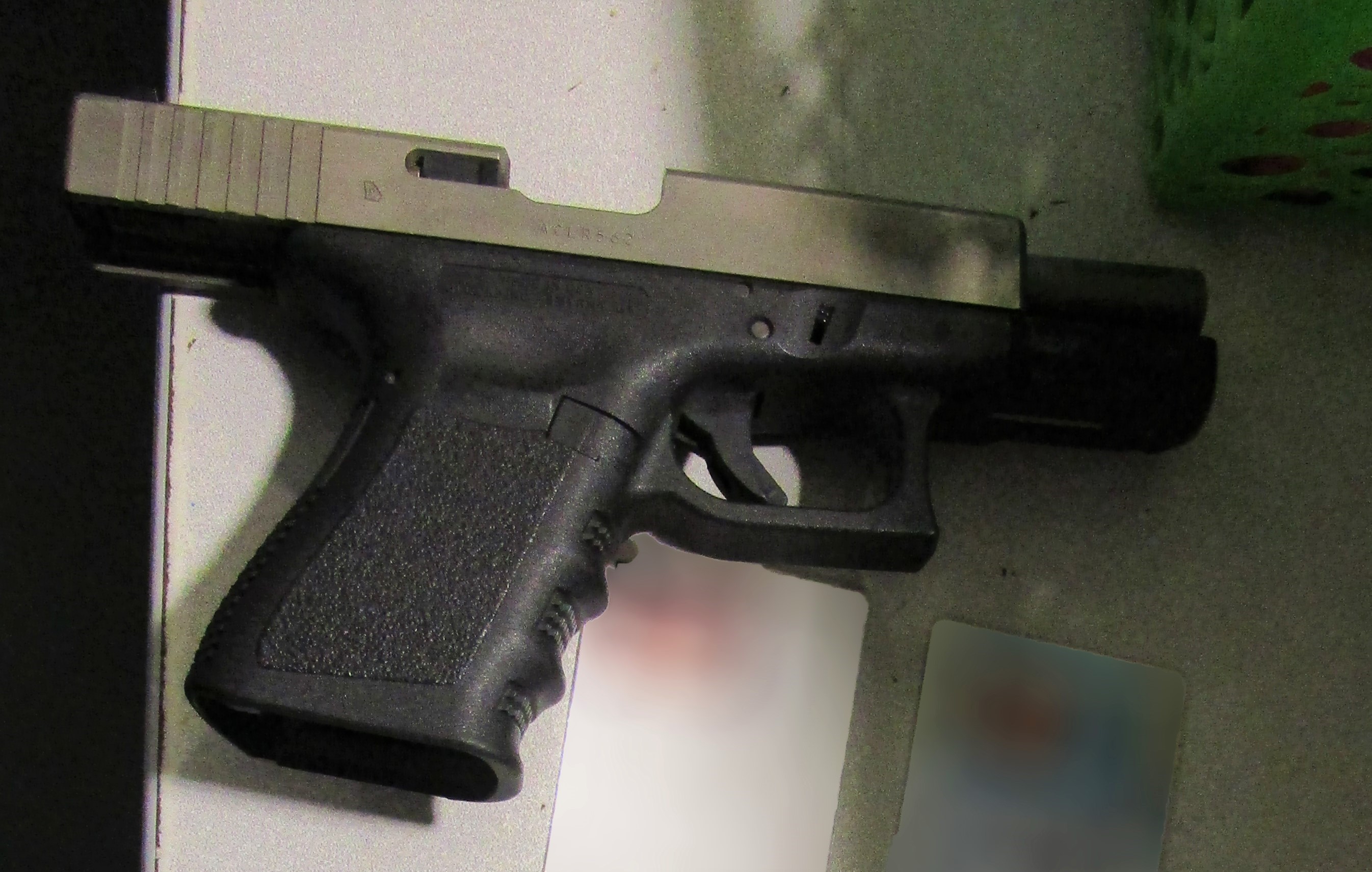 TSA officers at Pittsburgh International Airport detected this loaded gun at the checkpoint on November 21. (TSA photo)
TSA officers at Pittsburgh International Airport detected this loaded gun at the checkpoint on November 21. (TSA photo)
PITTSBURGH – An Altoona, Pennsylvania, man was stopped by Transportation Security Administration officers at the Pittsburgh International Airport (PIT) security checkpoint yesterday, November 21, with a 9 mm handgun loaded with 15 bullets.
It marked the 34th gun stopped by TSA at the airport checkpoint so far this calendar year, which tied the number of firearms caught in 2018.
A TSA officer spotted the gun in the man’s backpack as it entered the checkpoint X-ray machine. TSA contacted the Allegheny County Police, which responded to the checkpoint, confiscated the firearm, and detained the man for questioning.
Nationwide last year, 4,239 firearms were discovered in carry-on bags at checkpoints across the country, averaging about 11.6 firearms per day, approximately a 7% increase nationally in firearm discoveries from the total of 3,957 detected in 2017. Eighty-six percent of firearms detected at checkpoints last year were loaded and nearly 34% had a bullet in the chamber.
Firearms caught at the checkpoint | 2017 | 2018 | 2019 (As of 11-21-19) |
Pittsburgh International Airport (PIT) | 32 | 34 | 34 |
When an individual shows up at a checkpoint with a firearm, the checkpoint lane comes to a standstill until the police resolve the incident. With the busy travel season in full swing, guns at checkpoints can delay travelers from getting to their gates.
As a reminder, individuals who bring firearms to the checkpoint are subject to possible criminal charges from law enforcement. Even travelers with concealed firearm permits are not allowed to bring guns onto airplanes in their carry-on bags. If you’re a TSA Pre✓® member, then you could even lose your status. In addition, TSA has the authority to assess civil penalties of up to $13,333 for weapons violations. A typical first offense for carrying a handgun into a checkpoint is $4,100. The complete list of penalties is posted online.
TSA has details on how to properly travel with a firearm posted on its website. Travelers should also contact their airline regarding firearm and ammunition carriage policies as they may have additional requirements.
